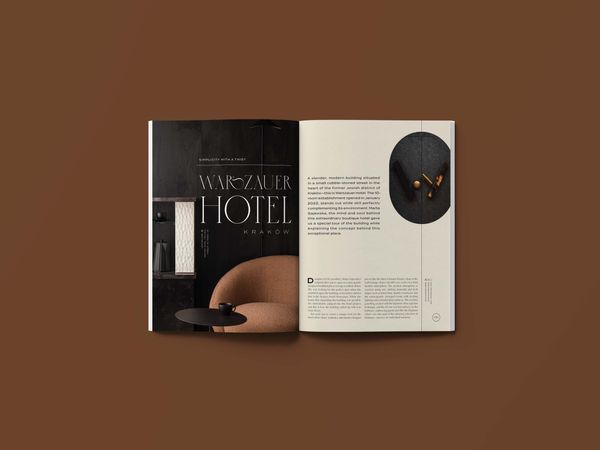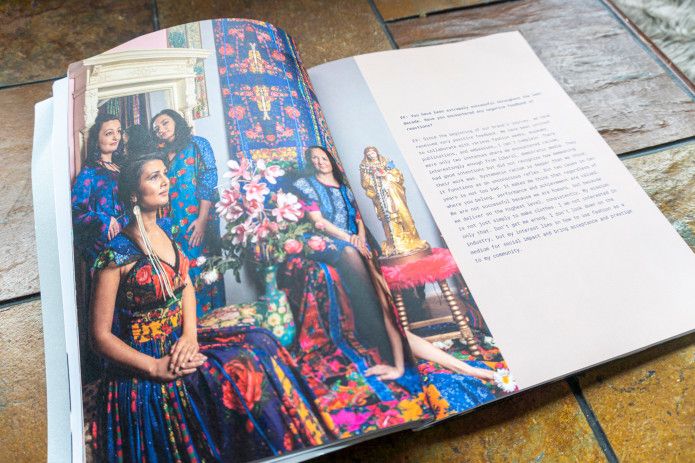Beyond trends and brands, what are the most pressing issues linked to the fashion world? How do fashion, society, culture and technology intertwine? What deep layers and diverse aspects of sustainability are undeservedly left out from the conversation? How does this play out in different parts of the world when we move away from the West? Fashion Forward, a New York-based think tank, has been set up to facilitate these niche discourses. We spoke to one of its Hungarian founders, Emilia Sára Bernát, Ph.D.
Tell us a bit about your personal journey: you started your career as a model. How did you end up founding a New York-based think tank?
When I graduated from high school, I was accepted to study Japanese and literature at the university back home. In the end, I never started that because I got a job at a modeling agency in Paris, which allowed me to spend three years traveling and working abroad. But I really missed studying. My experiences abroad made me wonder why people behave differently in different markets. Why do they want different things? So I enrolled at a university in Paris, where I started studying psychology and communication, focusing on consumer culture. After finishing my degree, I found a master’s degree in New York, the first in the world to focus specifically on brand strategy. I really liked this intersection of understanding markets through anthropology, design, business, and psychology. When I finished that, I started to work as a freelance brand strategist and also started a Ph.D. at Humboldt University in Berlin. I was researching what was then called humanistic luxury (see ethical luxury, sustainable luxury). I was fascinated by the fact that this term is practically an oxymoron. On the one hand, we are looking for social harmony, while luxury only works if we create social disruption. For six years, I have been exploring the human relationships, dynamics and desires that bring the two together. Fashion Forward was born out of both my branding background and the process of my Ph.D.
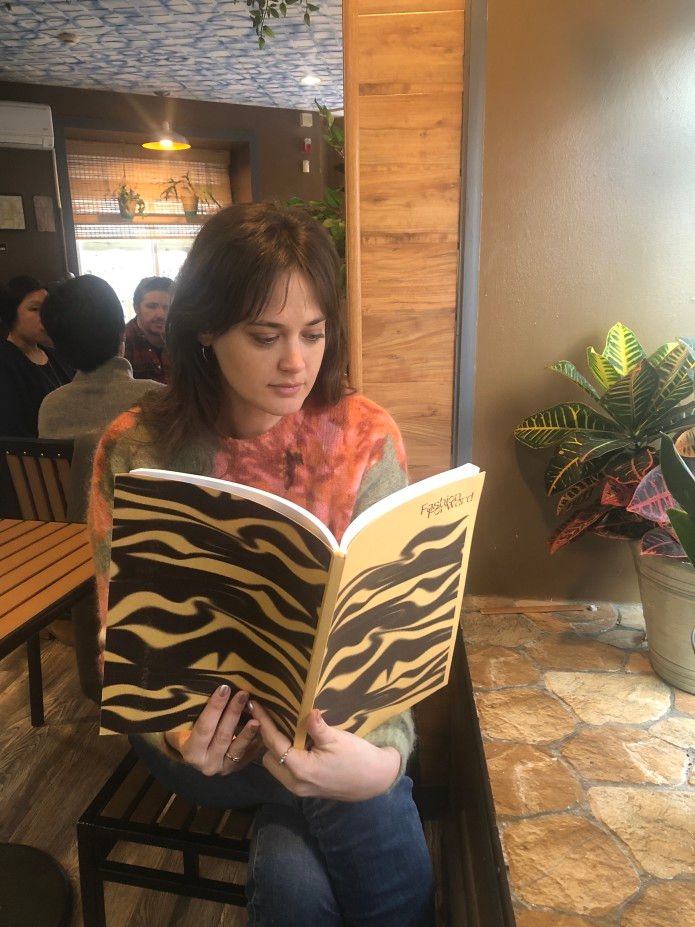
What were the actual steps that led you and Doris Domoszlai-Lantner to launch Fashion Forward? What made you feel that there was a lack of discourse in the fashion world?
About two or three years ago, we started talking with Doris, one of my fashion historian and archivist colleagues (who is also of Hungarian origin), about how sustainability is becoming more and more mainstream, but the discourse is still very narrow. It is usually limited to the used materials, zero waste, upcycling, vintage/secondhand options and fair-trade, often in a superficial way. However, there are many other areas of sustainability that are simply hardly talked about: from how decolonization, emotional culture, gender roles or transparency works in this context. We wanted to provide a platform and framework for such discourses. Fashion Forward is an autonomous, non-profit organization where we create various programs in collaboration with other organizations. For example, last year, we had a series of symposiums where we presented quite a few important topics. We’ve had guests who make clothes for prosthetics or run a modeling agency where their models have disabilities. We organized several talks on decolonization, luxury and research methods, and how we can use AI to create a more sustainable fashion system.
You are in the middle of a pre-order campaign for your first publication. What’s worth knowing about the concept of Fashion Forward magazine?
This publication is basically the result of the symposiums, during which we realized that we had built a collaborative platform that people from all over the world wanted to join. We have received inquiries and suggestions on how others in Peru, India, China or Germany are doing similar research on fashion. We wanted to give these talented people a chance to showcase their work and thus make the fashion system more inclusive. We had initially planned a zine, but it ended up being a 200-page book.
I think that although there are many great fashion magazines, there is not one that is truly global, has depth, but is not entirely academic.
The magazine explores culture, society, technology and sustainability through the lens of fashion in six sections. This first issue covers topics ranging from Eastern European issues such as the Babushka headscarf to lesbian TikTok culture to the dress codes of the Indian working class. There is a need, they argue, for a more sensitive and inclusive approach to these issues, in addition to an activist approach. We are fortunate that our authors open up to a culture of understanding and searching for a common platform.
How did you develop the aesthetics of the publication to represent these diverse contents coherently?
We worked with designer Pourva Sawant, who joined us from the UN. Our concept was to find a balance visually between having a fundamentally informative, often academic approach to the content while also having a strong ‘cool factor’. Pourva designed a consistent visual identity that is both clean but also has a sexy twist and is clearly aimed at a niche audience. And the biggest challenge in editing was to harmonize the different linguistic styles of the authors while also giving them maximum respect.
How will the publication be distributed and financed?
An Indiegogo campaign is going on right now, where you can pre-order the magazine in digital and print format. Once this closes, the magazine will be available for ordering from our website and will also be available in New York bookstores in limited editions. We’re working with a local, sustainable printer, so we’re not looking to sell elsewhere at this time, as it would not be financially or environmentally sustainable. We are currently exploring solutions to address this issue and working on setting up a franchise system to print in other locations (for example, in India). Meanwhile, for us, this is a love project, and knowledge sharing is the most important part of it, so if students or researchers approach us, we are happy to share the materials digitally. We envision the publication as a kind of annual imprint. It takes time to compile in-depth and thoughtful content and find suitable authors.
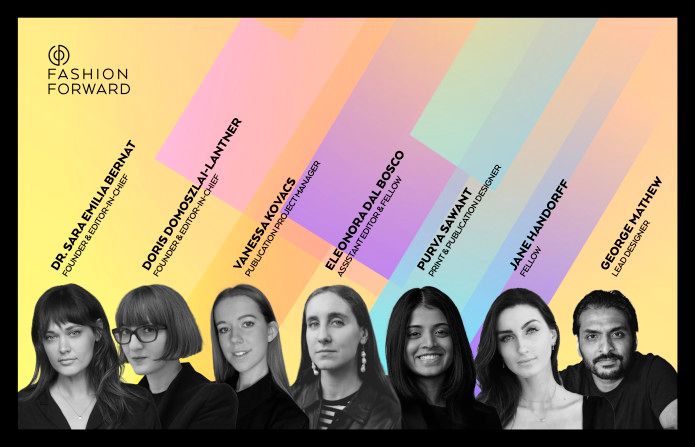
Where do you want to evolve and what are the next steps?
We would like to do very similar things as before but in even higher quality and in a more professional way. We want to bring back symposiums, produce annual journals, organize educational programs and conferences and work on more exhibitions. Although the role of this organization is not to make money but to create something lasting and important, it would be nice to grow to the point where we can give back to our contributors.
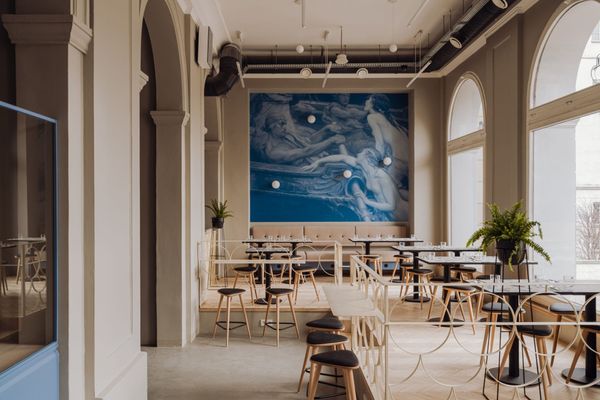
A new favorite spot for pierogi fans, Syrena Irena, opens in Warsaw
